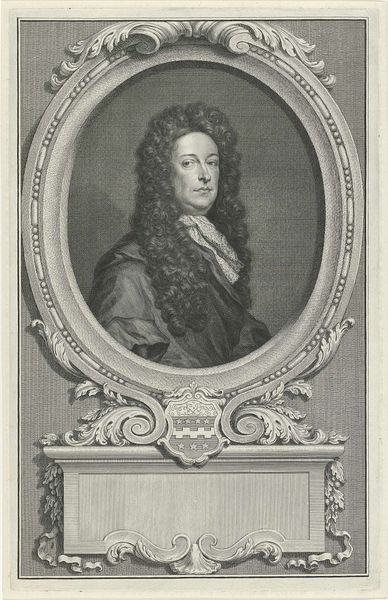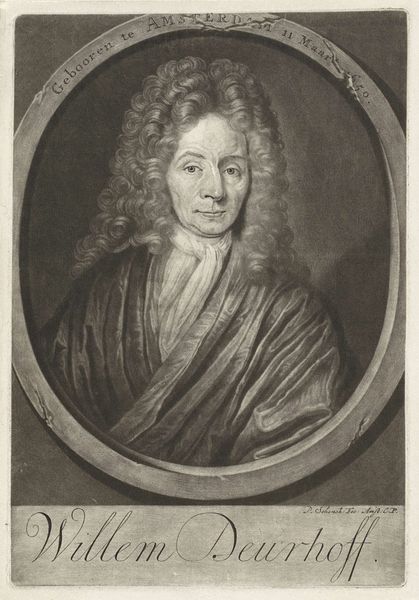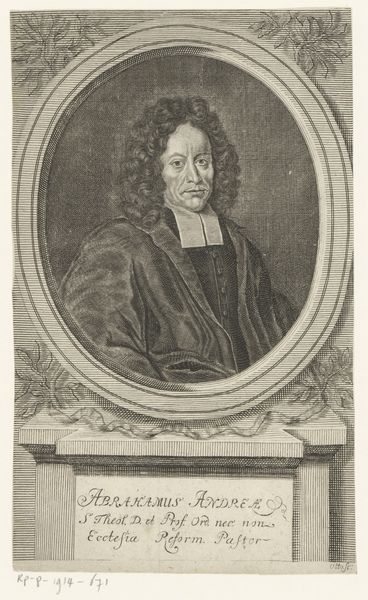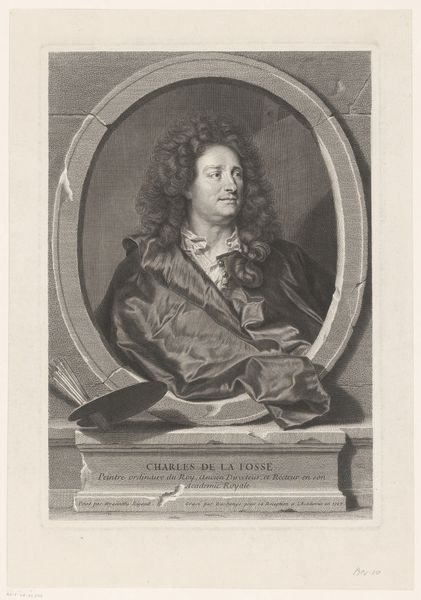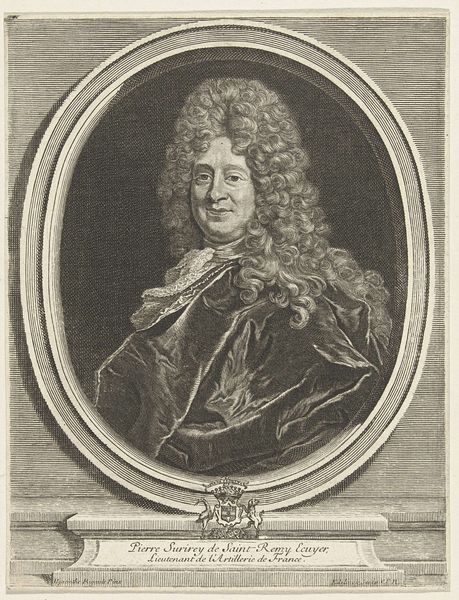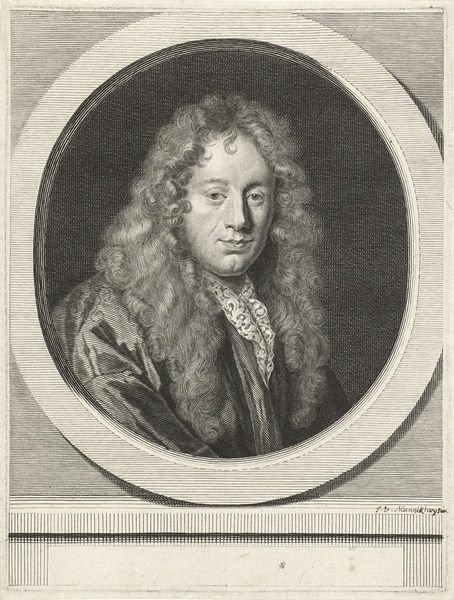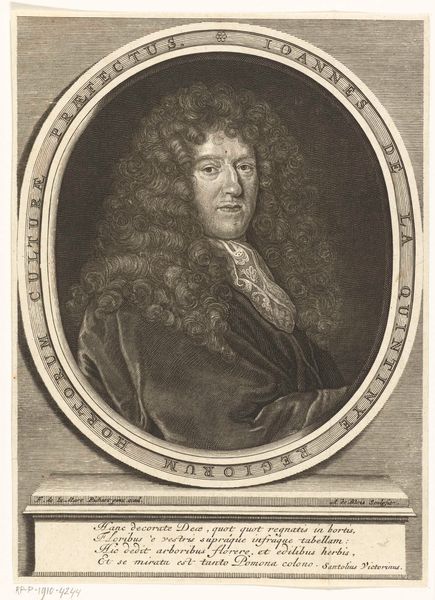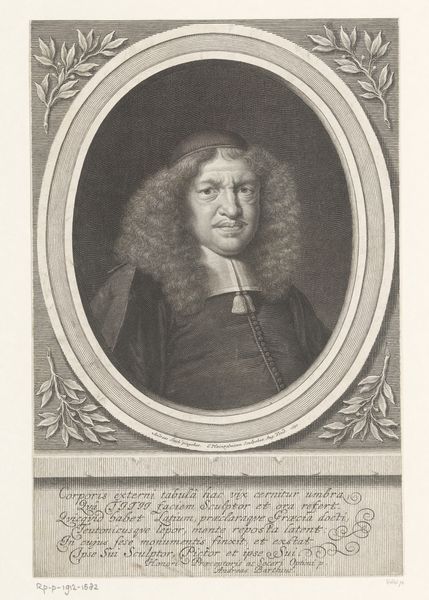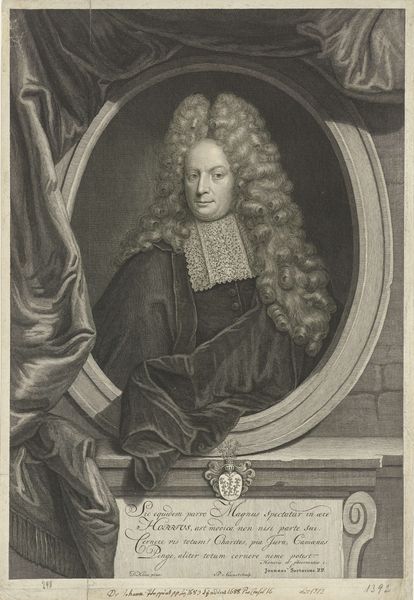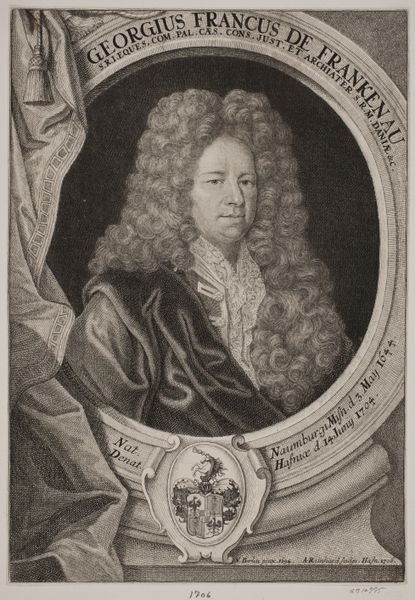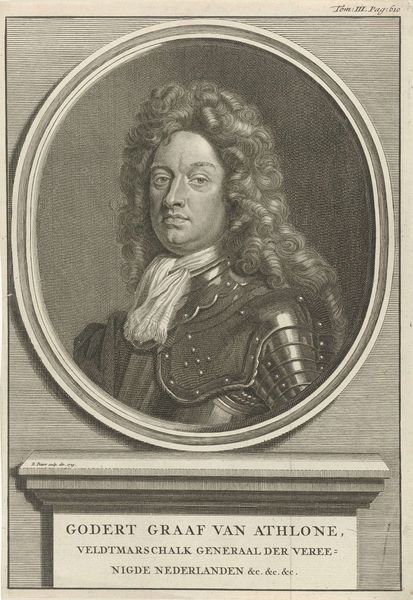
drawing, print, paper, engraving
#
portrait
#
drawing
#
baroque
# print
#
sculpture
#
paper
#
engraving
Dimensions: 346 × 238 mm (image); 356 × 248 mm (plate); 359 × 251 mm (sheet)
Copyright: Public Domain
Editor: This is an engraving from 1707 by Gaspard Duchange, after a work by Charles de La Fosse, now at the Art Institute of Chicago. I find the swirling lines of the wig really capture my eye. How do you interpret this work? Curator: I see a portrait deeply embedded in the politics of artistic representation. La Fosse, himself an influential painter and Director of the Académie Royale, is being positioned in a way that reinforces the power structures of the time. Look at the composition – he’s framed within a simulated stone oval, almost like a classical sculpture, elevating his status. How does the presence of his tools, the brushes and palette, shape your perception? Editor: They solidify his identity as a painter, someone skilled in their craft. They are symbols of his trade. Curator: Precisely! But think about what the Académie represented. It was the center of artistic power, defining taste and controlling access to patronage. This engraving, therefore, isn't just a likeness; it’s a carefully constructed statement about artistic authority. Editor: So, you’re saying it’s less about the individual and more about reinforcing the system? Curator: Exactly. Consider the social hierarchy of the period. La Fosse's position granted him not only artistic influence, but also social standing. The very act of commissioning this print underscores that status, participating in a culture that equates artistic talent with privilege and power. The engraving becomes a tool to circulate and perpetuate those notions. It invites us to question what and whom these institutional portraits actually serve. Editor: That makes me rethink how I initially saw the piece. Thanks! Curator: Indeed. Art can provide a fascinating insight into historical perspectives.
Comments
No comments
Be the first to comment and join the conversation on the ultimate creative platform.
